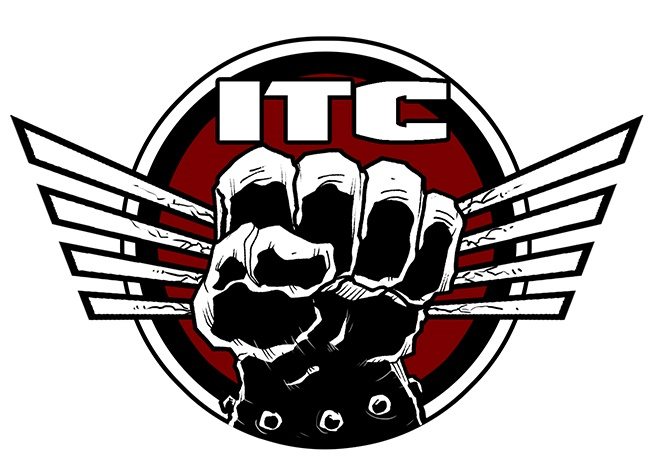
Hey everyone, here are the Chess Clock rules we’ve been using and have found to be great for keeping games on time. Give them a read and let us know what you think.
Now please remember a few things when reading these:
- These are a work in progress but based on a LOT of play-testing having been used in tournament play since 7th edition. And a HUGE thanks to everyone who crafted these rules (from the Chicago area, Dakka Dakka, and many more) and was willing to share them with the ITC community!
- These are optional to use, you are not obligated to use chess clocks in the ITC format.
- Due to the nature of implementing them in 40k it requires some house rules or the clocks don’t function correctly.
When does time start?
Time starts when the first pregame action or dice roll happens.
When does the game end?
Games end naturally depending on random game length rolls or at the start of a new game turn when neither player has greater than 10:00 minutes of time left on the clock.
- This number is malleable, too. We’ve experimented with as low as 5 minutes but when folks are getting used to the clock, 10 is a little more forgiving. Let us know what you think after you’ve tried it out a few times!
Rules:
- Each player is responsible for their own time. It is a player’s right but not their obligation to make sure that their time is being handled properly.
- In the assault phase, a player may always choose to forego rolling to determine the results of a combat, starting with the player whose turn it is. If they choose to save their time this way, their opponent may decide the results of the assault. This can range from leaving the enemy unit unharmed, up to removing the entire unit involved in the combat. This must be decided before any rolls are made in the combat.
- This is the biggest deviation from book standard and the point we’ve like the most feedback on. This rule developed as a result of player feedback using the system and wanting a way to speed things up but keep it fair from the perspective of the clock. For people that have not used a chess clock before, you may not be used to the concept of saving your time as a high priority. If you were to just pull models off of the table without taking proper steps to save your clock, that is actually not fair to your opponent and violates the spirit of the clock. So, rules have been implemented to create a system to fairly address this. And again, all feedback welcome!
- Also, an example as this has been confusing people. Player A has a unit of 3 Genestealers remaining in a combat against 10 Berzerkers. Player A player goes first and chooses to not to roll it out, however per the BRB rules they’d have to do this step by step which takes time and in this example let’s assume that Player A is very low on the clock and doesn’t want to take the time to roll the combat out. The Berzerker player now can opt to simply pull the Genestealer unit off of the table, counting them as destroyed and carry on with the game without actually rolling out the attacks. Or, he could opt to possibly leave a single Genestealer and wrap it up to prevent the Berzerkers from being shot in the next shooting phase. People pull units like this all the time normally in games, but this rule is in place to formalize how to do it with the added element of the clock. The thing to remember is that the objective here is not to simulate what is likely to occur or just to speed the game up, but to prevent a player from pulling models instead playing out the game in proper sequence in order to not burn their clock.
- In the assault phase, a player may always choose to forego rolling to determine the results of a combat, starting with the player whose turn it is. If they choose to save their time this way, their opponent may decide the results of the assault. This can range from leaving the enemy unit unharmed, up to removing the entire unit involved in the combat. This must be decided before any rolls are made in the combat.
- Any major rule dispute results in a paused time scenario. The time is to remain paused until a formal judge is called to the table and resolves the dispute.
- If a player’s time runs out, they may not perform any actions except for those listed below. The only exception is if they are in the middle of moving a unit, they may finish so that the unit is placed legally on the board. As an example, this can include moving a unit in the movement phase, finishing moving a unit into assault (note they will not be able to attack), or consolidating a unit. Any other action is immediately stopped.
- If a player runs out of time they may only perform the following actions:
- Making saving throws, and taking a leadership test if required to.
- Scoring objectives that they have already achieved or already hold.
The most important rule is rule number 1. This is the most important rule because it puts time in your control, and fairly allocates time while players interact. It is each player’s right to pass the time to his opponent whenever they are making an action or spending time making a decision.
Some examples of this are as follows:
- You put 20 wounds on a unit containing models with different saving throws. Pass the clock to your opponent so he can make his saving throws in the order that he chooses.
- Your opponent must make 3 leadership tests. Pass the clock to your opponent while he makes these tests and adjusts the units which fail.
- You destroy a vehicle and your opponent has a large squad inside that he wants positioned just right. Pass the clock to him while he arranges his models.
- You do 5 power fist wounds and 5 regular wounds to a unit. Pass the clock to your opponent while he decides what saves to take on which models.
These examples are limited but show the basic concept. You manage your own time and it is up to you to pass the clock. If you burn your own time, it is not your opponent’s fault.
And remember, Frontline Gaming sells gaming products at a discount, every day in their webcart!

